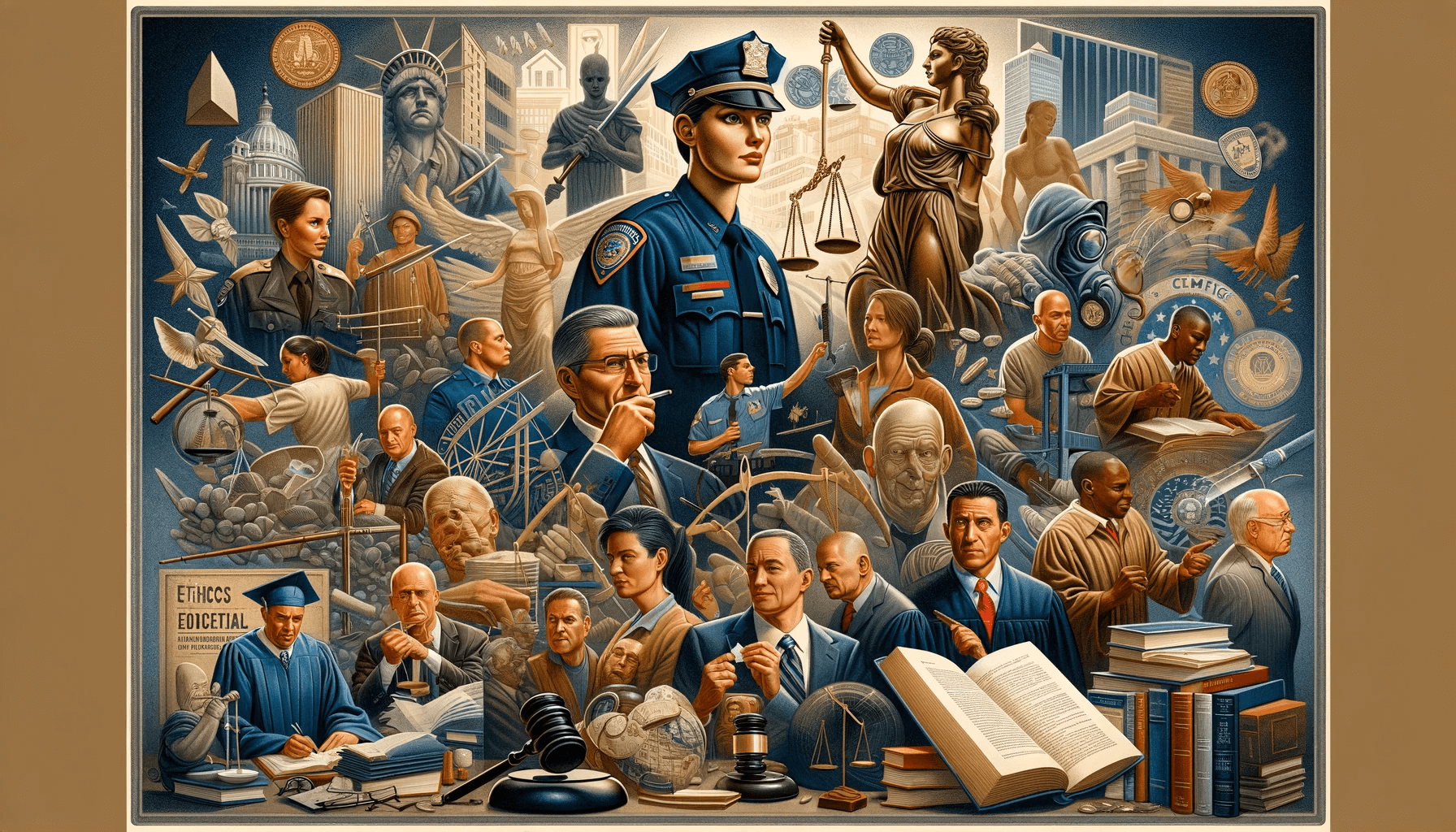Hey, I’m John M. Kaman from Kaman Law Firm, and today, we’re tackling a fundamental question: Why is the study of ethics important in criminal justice? This isn’t just academic musing; it’s about the heart of how justice is served and perceived. So, let’s break down this topic and explore its many facets.
The Essence of Ethics in Criminal Justice
Ethics in criminal justice isn’t just about following the law. It’s about understanding and upholding moral principles that govern the behaviors and decisions of those who work within the system. This includes law enforcement officers, judges, attorneys, and correctional officers.
Core Components of Ethics in Criminal Justice:
- Integrity: Honesty and moral uprightness are non-negotiable.
- Fairness: Ensuring equal treatment and impartiality.
- Respect for Individuals: Upholding human dignity and rights.
The Impact of Ethics on Law Enforcement
Let’s start with law enforcement. Police officers are often the first contact the public has with the criminal justice system. Their adherence to ethical standards sets the tone for public trust and confidence.
- Community Relations: Ethical policing fosters community trust, which is crucial for effective law enforcement.
- Decision-Making: Officers face complex situations daily. Ethical training helps them make decisions that are not just legally right but also morally sound.
- Accountability: Upholding ethics means being accountable for actions, which is vital in maintaining public trust.
Ethics in the Courtroom
Moving to the courtroom, where judges and attorneys play pivotal roles, ethics are equally crucial.
- Judicial Conduct: Judges must exemplify impartiality, avoiding any bias or prejudice in their rulings.
- Legal Representation: Attorneys have an ethical duty to represent their clients vigorously while maintaining honesty and integrity.
- Conflicts of Interest: Both judges and attorneys must avoid situations that could impinge on their ethical obligations.
Correctional Ethics
In the realm of corrections, ethical considerations are often complex and multifaceted.
- Treatment of Inmates: Correctional officers must balance maintaining order and security while respecting the rights and dignity of inmates.
- Rehabilitation vs. Punishment: Ethical considerations play a key role in determining approaches to rehabilitation and punishment.
- Mental Health and Ethics: Addressing the mental health needs of inmates is also an ethical imperative in modern corrections.
The Broader Implications for Society
The ethical conduct of criminal justice professionals has profound implications for society at large.
- Public Trust: Ethical lapses can lead to a loss of public trust, which is essential for the effective functioning of the justice system.
- Social Justice: Ethics in criminal justice is also about ensuring social justice, addressing issues like racial bias and economic disparities.
- Policy and Reform: Ethical considerations often drive policy changes and reforms in the criminal justice system.
Educating the Next Generation
The importance of ethics in criminal justice is also why its study is integral in education and training programs for future professionals in the field.
- Curriculum Development: Incorporating ethics into the curriculum ensures that future criminal justice professionals understand and value moral responsibility.
- Scenario-Based Training: Practical training scenarios can help students and trainees grasp the real-world implications of ethical dilemmas.
Conclusion: Ethics as the Foundation of Justice
In summary, the study of ethics is crucial in criminal justice because it forms the foundation upon which fair and just legal systems are built. As a professional at Kaman Law Firm, I’ve seen firsthand how ethical considerations shape outcomes and perceptions in the legal world.
If you’re interested in exploring more about this topic or need legal assistance, feel free to reach out to us at Kaman Law Firm. Let’s uphold the highest ethical standards in our pursuit of justice.









Leave a Reply